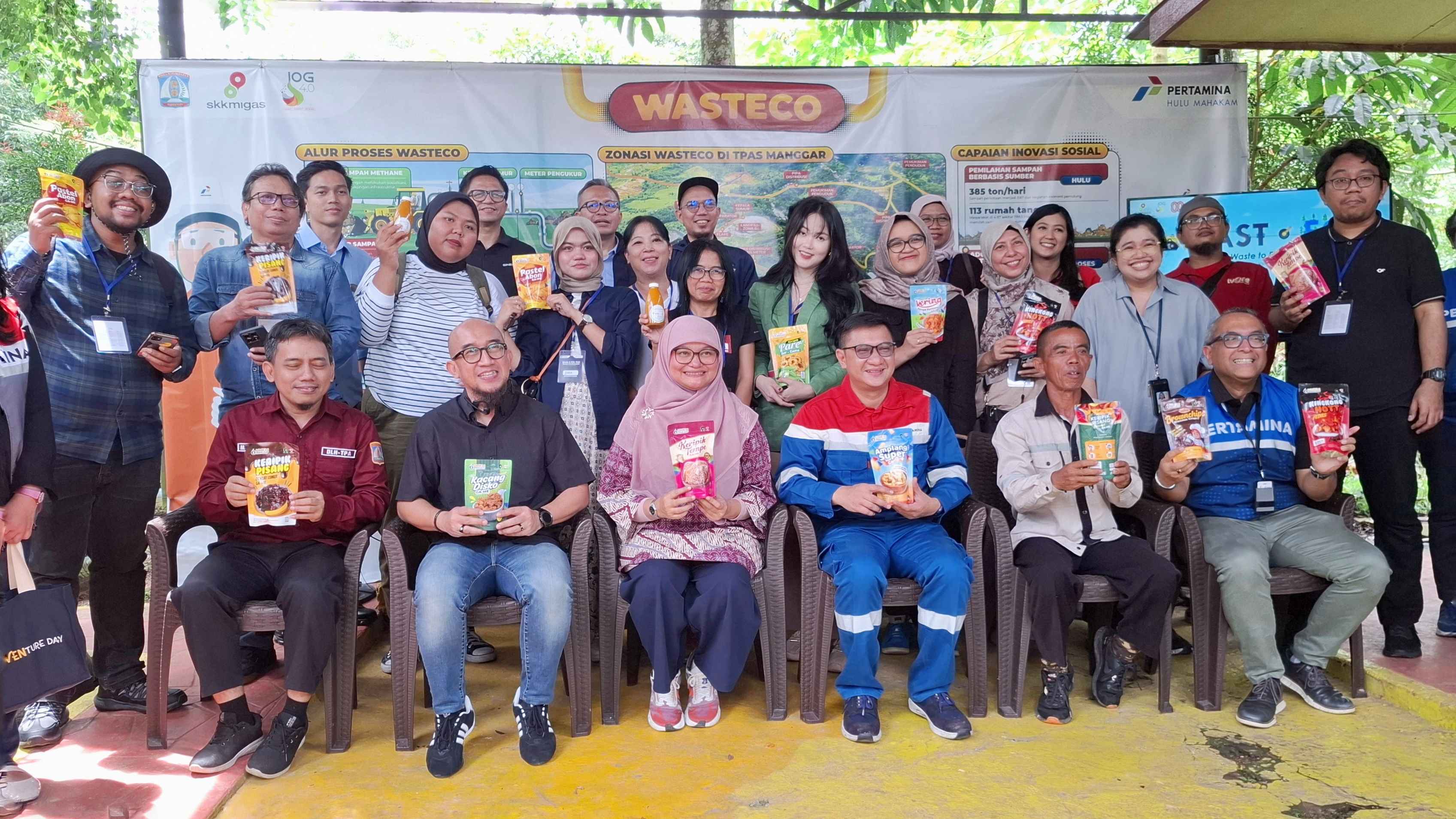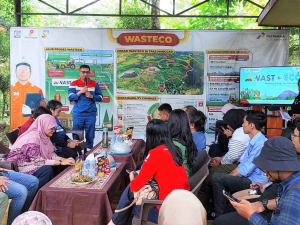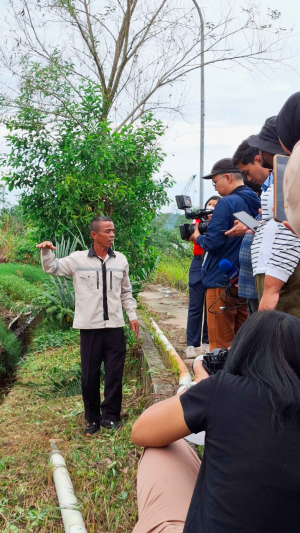19
Aug

Balikpapan – PT Pertamina Hulu Indonesia (PHI), a subsidiary of PT Pertamina Hulu Mahakam (PHM), welcomed several national journalists and Key Opinion Leaders (KOLs) to its Waste to Energy for Community (Wasteco) CSR program, located at the Manggar Final Waste Processing Site (TPAS), Balikpapan. The Wasteco program utilizes methane gas generated from organic waste processing at the Manggar TPAS as an alternative energy source to support the energy needs of households and MSMEs.
Waste management and methane gas utilization, such as those in the Wasteco program, have significant potential to address waste issues in various cities across Indonesia. In 2024, Wasteco was one of the programs invited to attend the United Nations Global Compact conference in New York. Meanwhile, the Indonesian Minister of Environment, Hanif Faisol Nurofiq, also visited the Wasteco program on April 13.
Dony Indrawan, Manager of Communication, Relations & CID at PHE, described the Wasteco Program as a pioneer in managing methane gas from organic waste, thus producing a new and renewable energy source. "At PHE, we believe that a harmonious relationship with the communities and environment surrounding our operational areas in Kalimantan will support the sustainability of the Company's operations and business in generating energy for Indonesia.
He stated that, in line with the sustainability policies of PHE and PT Pertamina (Persero), PHI is committed to implementing programs and initiatives for emission reduction, energy efficiency, waste management, flora and fauna conservation, and the utilization of new and renewable energy in the Company's upstream oil and gas operations. "The Wasteco Program is our step in preserving the environment through waste processing and producing energy that can be utilized for community empowerment," he said.
The Wasteco Program has successfully managed organic waste and the resulting methane gas, contributing to a reduction in greenhouse gas emissions of up to 100,651.70 tons of CO₂eq per year. This contribution aligns with the government's efforts to reduce the amount of carbon in the atmosphere, while also reducing vulnerability to natural disasters, environmental damage, and preventing the impacts of global warming. "This program has had a real impact on the environment and society. "Its sustainability requires the support of all parties," he said.
In the Wasteco Program, PHM is adopting six oil and gas exploration technologies to process methane gas. This program has obtained Intellectual Property Rights and Patents from the Indonesian Ministry of Law and Human Rights.
The volume of waste in Balikpapan City amounts to approximately 385 tons per day, with the potential for methane gas production at the Manggar Landfill reaching 1.5 million cubic meters per year. Of this potential, 820,800 cubic meters per year are currently utilized, benefiting 380 households, which in turn support 1,520 people. Furthermore, Wasteco's presence has stimulated the local economy, marked by the birth of 29 new MSMEs and a waste bank group involving 113 residents from three surrounding neighborhood units (RTs).
Furthermore, this program has also successfully reduced household cooking costs by up to IDR 456 million per year by reducing the total use of 3-kg LPG cylinders by 16,800 cylinders annually. Wasteco's success has been replicated in Bontang and Bali and has become a benchmark for innovation for many parties, both within and outside the city. Overseas.
The visiting national journalists and KOLs were also welcomed by representatives of the management of PT Pertamina (Persero), PT Pertamina Hulu Energi (PHE), and PT Pertamina Hulu Indonesia (PHI). PHE's Senior Manager of External Communication & Stakeholder Relations, Fitri Erika, emphasized that environmental awareness and concern are key to creating innovations like Wasteco. "From a technical perspective, processing waste into methane gas is a step forward in addressing the waste problem," she said.
The Wasteco program supports the achievement of several Sustainable Development Goals (SDGs), including Goal 7 (Affordable and Clean Energy), Goal 8 (Decent Work and Economic Growth), and Goal 13 (Addressing Climate Change).
PT Pertamina Hulu Mahakam (PHM) is a subsidiary of PT Pertamina Hulu Indonesia (PHI) in Zona 8. It manages upstream oil and gas operations and businesses in accordance with Environmental, Social, and Governance (ESG) principles in the Mahakam Working Area in East Kalimantan. As a Production Sharing Contract Contractor for the Indonesian government, represented by SKK Migas, PHM, along with its subsidiaries and affiliates, PHI also implements innovative Corporate Social Responsibility programs in the areas of Economics, Education, Health, Environment, Infrastructure, and Disaster Response to support sustainable community empowerment and the achievement of the Sustainable Development Goals (SDGs). PHI is headquartered in Jakarta. Further information about PHM and PHI is available at https://phi.pertamina.com.

